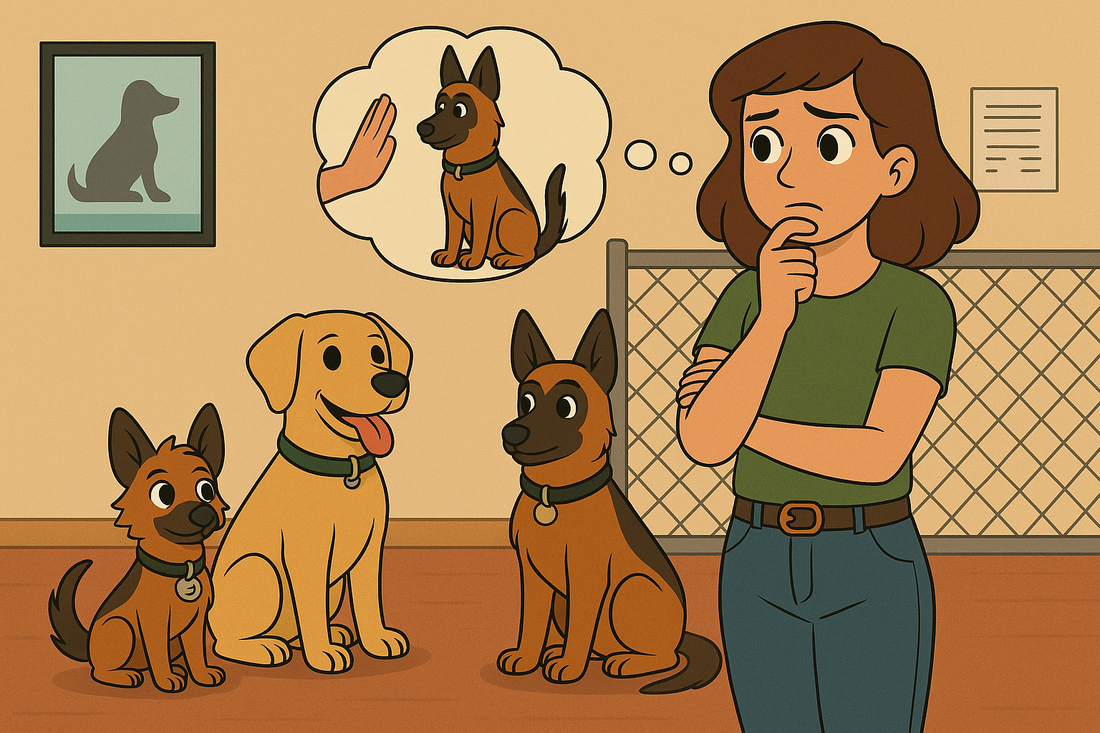
How to Choose a Dog That Fits Your Lifestyle
Partager
Why It’s Better to Choose the Right Match Than to Change Your Life for the Dog
When bringing a new dog into your life, one of the most important decisions you’ll make is choosing a dog that truly fits your lifestyle. It’s easy to fall in love with a breed or specific dog based on looks or emotion, but without a good match in energy, routine, or personality, things can go sideways fast.
When that happens, dogs may not get the exercise, stimulation, or structure they need. Over time, that mismatch can lead to frustration on both sides, chewing, barking, reactivity, and, in some heartbreaking cases, surrendering the dog to a shelter.
Choosing a dog should never be about forcing your life to fit a breed. It’s about finding a companion whose needs naturally fit into your rhythm.
Why Picking the Right Dog Matters
Dogs, like people, have unique personalities and needs. Some are laid-back and thrive in a quiet home, while others are high-energy, driven, and need a job to do. Most breeds were developed over generations for a specific purpose—herding, guarding, retrieving, or companionship—and those instincts don’t just disappear because they now live in a house.
Think of it like trying to fit a round peg into a square hole.
When you choose a dog whose natural drives, temperament, and energy level don’t align with your lifestyle, you’re setting both of you up for frustration. It doesn’t mean the dog is “bad”, it means the fit isn’t right.
That’s why it’s so important to research the breeds you’re considering. Ask yourself:
What was this breed developed to do?
A Malinois wasn’t bred to be a couch potato, it was bred to work hard, think fast, and move all day. A Basset Hound wasn’t designed to win agility championships, it was bred to follow scent trails at a steady pace. These instincts are hardwired into their DNA, and while training helps shape behaviour, it can’t erase centuries of purposeful breeding.
Understanding what your potential dog was meant to do will help you choose a companion that’s naturally compatible with your life, not one that constantly needs you to compensate, correct, or compromise.
How to Choose the Right Dog for Your Life
Assess Your Activity Level
Are you a hiker or a homebody? If you love the outdoors and move a lot, an active breed like a Labrador Retriever, Australian Shepherd, or Belgian Malinois could be a good fit. If you prefer relaxed evenings and shorter strolls, you might be happier with a breed like a Bulldog, Boston Terrier, or senior dog.
Consider Your Living Situation
Your space matters. Large breeds and high-energy dogs need room to move, even if they’re well-behaved. If you’re in an apartment or condo, consider a lower-energy dog or one that’s smaller but still adaptable to city life, like a Cavalier King Charles Spaniel or French Bulldog.
Think About Time Commitment
Some dogs are high-maintenance in terms of grooming, training, or exercise. Puppies need constant supervision and socialization. If you’re juggling work, kids, or other commitments, consider a breed that is more independent or already trained, like a rescued adult dog.
Take Into Account Your Experience Level
Some breeds are best suited to experienced owners. If you’re new to dog ownership, start with a breed known for being easygoing and trainable, like a Golden Retriever, Beagle, or Poodle. Avoid jumping into high-drive working breeds unless you’re truly ready for the commitment.
And a quick note about those viral videos:
Dog trainers love using breeds like Belgian Malinois because they are extremely pattern-aware and responsive to training. But what you see online, the flashy obedience, the bite work, the trick routines, is the highlight reel. You’re not seeing the bloopers, the failed reps, the destroyed furniture, or the 5 AM zoomies. These dogs need structure, consistency, and outlets for their energy every single day. If you’re not prepared for that, it’s better to admire them from afar than to bring one home and hope it works out.
Think About Your Family Dynamic
Have young kids? Other pets? Some breeds are famously family-friendly, like Labs and Cavaliers, while others may be more sensitive to chaos or less tolerant of rough play. Choose a dog that meshes with your home environment.
Temperament Over Appearance
Don’t choose a dog just because they’re cute. Looks don’t tell you if a dog is calm, anxious, confident, needy, or aloof. Ask about their temperament. Do you want a shadow who follows you everywhere, or a dog who’s content lounging independently?
Don’t Forget Age Matters Too
Puppies are adorable, but they’re also a ton of work. If you want a companion that fits into your life right away, consider adopting an adult or senior dog. They often come with some training, a stable personality, and they’re every bit as loving.
Avoid Trying to Change Your Life to Fit the Dog
Here’s the hard truth: If your lifestyle doesn’t align with your dog’s needs, no amount of love will fix the mismatch. You might try waking up earlier, adding more walks, or rearranging your schedule, but if it’s not sustainable, resentment can build.
Instead, choose a dog that already fits.
When you choose wisely, you’re setting both yourself and your dog up for success, joy, and connection. You’ll spend less time trying to manage behaviour and more time actually enjoying life together.
Choosing a dog is a long-term commitment. It should be a decision based on compatibility, not impulse, trend, or appearance. By considering your lifestyle, energy level, home environment, and experience, you can find a dog who complements you, not complicates your life.
Remember: the right dog doesn’t make you change everything. The right dog fits into your everything.
Choose with your heart and your head. Both you and your future dog will thank you.